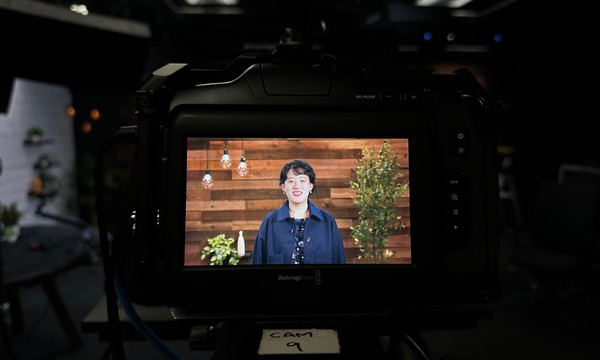Everyone does it. The role of self-deception in a person’s life, whether prominent or minimal, is present. Biola University chair of philosophy Gregg Ten Elshof recently released I Told Me So: The Role of Self-Deception in Christian Living (published by Wm. B. Eerdmans) a book about the everyday role self-deception plays in a person’s life.
Do you justify questionable means to an end? Or turn a blind eye to tragedies in our world? Or as Ten Elshof asks, think you are better than average at your job? In his profession, 94 percent of his colleagues believe they are. These questions have one common denominator – self-deception. Ten Elshof says we can either believe the truth about ourselves or deceive ourselves.
According to Christianity Today, one of the most refreshing statements in I Told Me So is that self-deception is not always bad.
“The practice of perspective switching, for example, also enables empathy toward someone who is suffering,” according to CT. “And procrastination can let people take a step back, breathe and avoid making rash decision.”
However, it is an issue when people use self-deception to convince themselves that they are better than they are in actuality, such as “If I’m not so bad, I don’t have to change,” said Ten Elshof. Although pastors and Christians interested in spiritual formation understand self-deception is prevalent in the Church, he said this is the only current book he knows of on the topic.
“Psychologists who focus on this sort of thing have explored the various forms that self-deception can take and the conditions under which it reliably occurs,” said Ten Elshof. “I Told Me So is the only contemporary book I know about, though, that explores the various manifestations of self-deception in Christian sub-cultures in particular and provides explicitly Christian wisdom about what to do with and about self-deception."
In his book, Ten Elshof offers helpful strategies to avoid the negative effects of self-deception.
Biola University’s Joseph Gorra interviewed Ten Elshof on self-deception in the Christian life.
Purchase Gregg Ten Elshof’s book, I Told Me So.
Gregg A. Ten Elshof is the Chair of Biola University’s Department of Philosophy. His research interests include Contemporary Epistemology, Metaphysics/Ontology and Philosophy of Religion. He received his Ph.D. from the University of Southern California and his M.A. at Biola University’s Talbot School of Theology.
Written by Jenna Bartlo, Media Relations Coordinator. Jenna can be reached at (562) 777-4061 or through email at jenna.l.bartlo@biola.edu.
 Biola University
Biola University

.jpg)
.jpg)